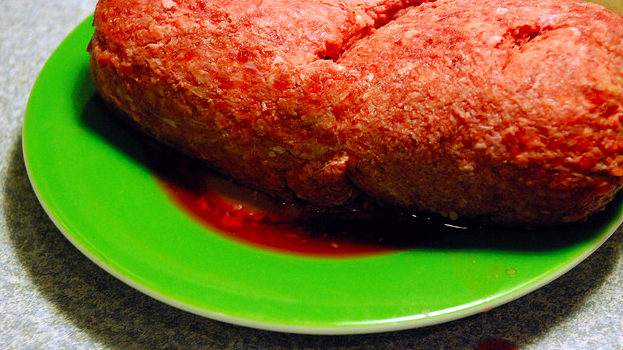Are you having beef for dinner? Do you know where it came from? No, not the grocery store down the street, but where the cow was raised? Most of us probably can’t answer those questions, and that’s a growing concern for health advocates, retailers, and lawmakers amid reports that some meatpackers in Brazil — one of the world’s largest exporters of beef — are shipping out rotten, salmonella-tainted beef. [More]
exports

Direct Flights From Kenya Means Direct Shipments From Flower Farms
Until now, airlines couldn’t have direct flights from Kenya to the United States: Travelers had to change planes in a third country because Kenya’s biggest airport didn’t meet the U.S. Federal Aviation Administration’s safety and security standards to send planes here directly. Now non-stop flights are beginning, and that means direct shipments of fresh vegetables and flowers. [More]
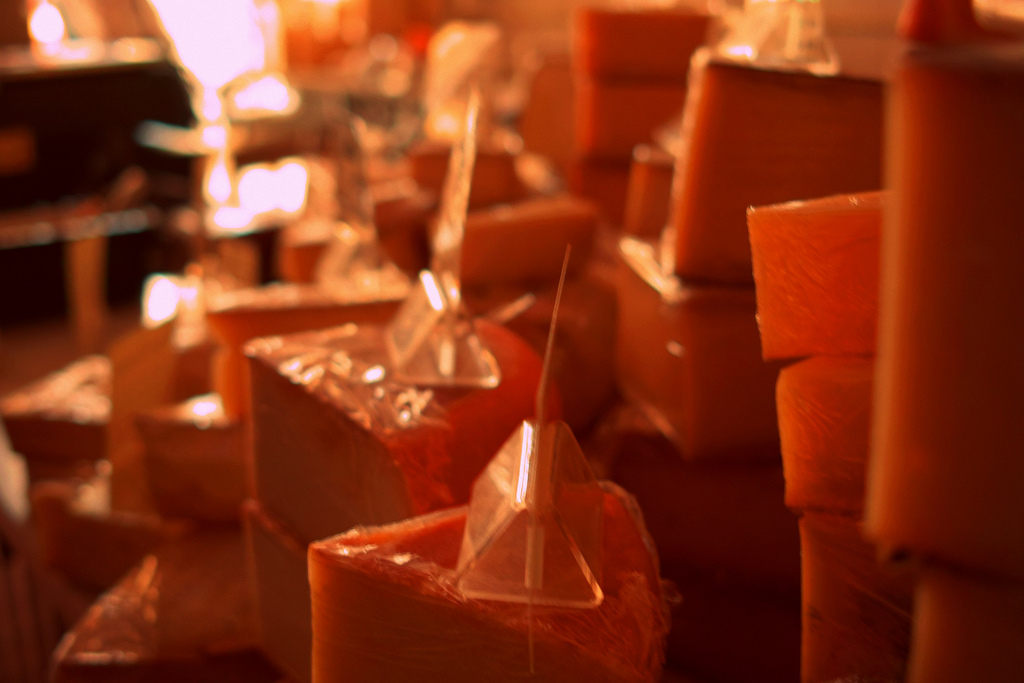
The U.S. Has A Giant Cheese Surplus And Unfortunately, This Is A Bad Thing
In many cases, having too much cheese is the kind of problem that can be solved by pointing me in the direction of that dairy and letting nature take its course. But the surplus cheese and butter situation the U.S. now finds itself in won’t be sorted out so easily. [More]
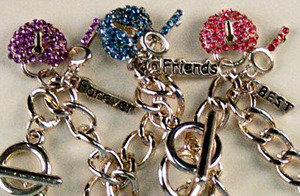
Safety Commission Cracking Down On Cadmium In Kids' Jewelry
It’s a good thing summer camps are coming up, with their weird seminars on bracelet weaving and whittling rings, because the U.S. Consumer Product Safety Commission (CPSC) has just announced a recall of 19,000 charms sold at Claire’s stores, and says that’s just the beginning. [More]
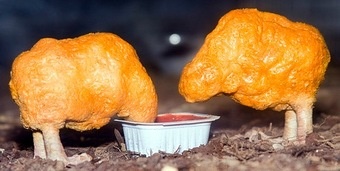
U.S. Balks At Prospect Of Imported Chinese Chickens
China is itching to sell their processed chickens directly to the U.S. market, an idea that doesn’t exactly thrill our regulators or representatives. Congress banned the import of processed Chinese chickens in 2007, ruffling Beijing’s feathers to the point where they’re now considering a retaliatory ban on U.S. chickens. Since we’re in a recession and Congress doesn’t want domestic chicken exporters to lose over a half-billion dollars next year, they may let the Chinese chickens come here to roost.
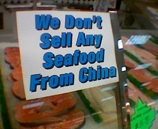
Use Free Trade To Promote Food Safety
National Journal has an interesting article about the intersection of free trade and globalization with increased food safety abroad and at home. Rather than reject shipments of Chinese fish for being raised in disgusting environments, the US should require trading partners to set and enforce their own strict food safety standards and use globalization as a way to promote better standards worldwide, instead of a race to the bottom.
../..//2008/12/31/chairwoman-of-chinese-dairy-company/
Chairwoman of Chinese dairy company pleads guilty in melamine case, may face death penalty. [Reuters]
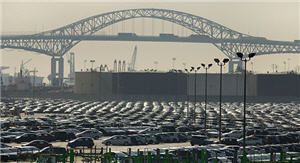
Welcome To The Island Of Misfit Luxury Imports…
If you’re looking for a photograph to illustrate how our economy has changed over the past few months, take a look at this. No, that’s not a parking lot in a town where everyone has the same taste. It’s the Port of Long Beach, where “thousands of cars worth tens of millions of dollars are being warehoused,” unwanted by the dealers who used to sell them. They’re imports — Mercedes-Benz, Toyota, and Nissan orphans.

Mice Found On United Airlines Flight
United Airlines Flight UA897 from Washington to Beijing landed in China with a mice infestation onboard, reported a Chinese state official on Monday: “Eight mice, dead and (alive), were found at last … hidden in pillows.” An “emergency team” boarded the craft and “put rat poison and mouse traps at every possible corner on the aircraft, including the cockpit… the surviving mice were sent to labs for testing.”
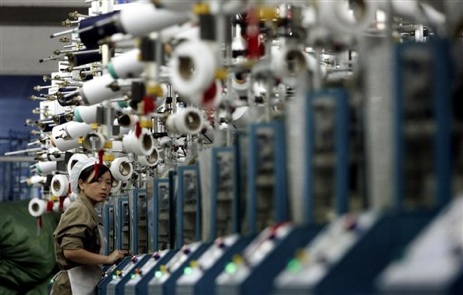
China Revokes 750 Export Licenses, Orders 690 Toy Factories To Renovate
Worried that the whole tainted export thing might further poison their image, China this week revoked the export licenses of 750 toy factories citing quality control problems. The move came just as the Senate Commerce Committee passed the CPSC Reform Act, which would strengthen domestic toy safety standards and impose penalties of up to $100 million on companies that sell dangerous toys.
Despite the announcement of the license suspensions, Chinese regulators said 99 percent of toy exports in southern Guangdong Province, near Hong Kong, met quality standards.
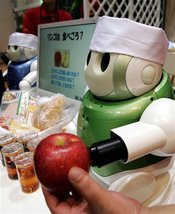
Robots And Science Will Keep Our Food Safe
The Administration envisions a future where science and technology keep our food supply safe and secure. The multi-agency working group tasked with improving food safety has yet to agree on final recommendations, but both interest groups and the Administration seem dead set against new inspectors. Instead, the working group wants to build upon the current system of random inspections to better target potential dangers among the $2.2 trillion worth of goods imported each year.
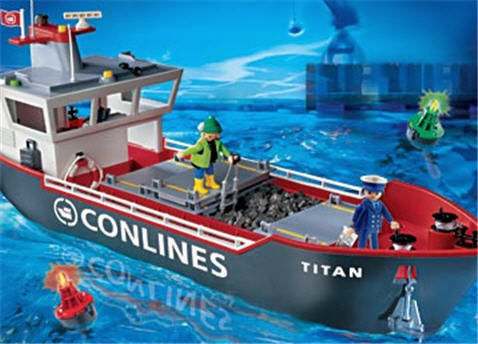
Hey, Why Aren't Your Toys Made In China?
The New York Times took a look at some European toy makers who decided to let the Chinese Poison Train pass them by. Why didn’t they outsource their manufacturing to China?
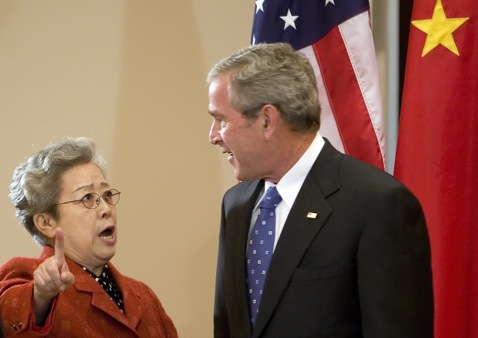
China Appoints Tough Anti-Poison Czar
Meet Wu Yi. The 68-year old Vice Premier, the highest ranking woman in the Communist Party, has been tasked with one mission: toss the Chinese Poison Train back into the rapidly industrializing nation’s toy-chest.

China Upset About "Hazardous" US Soybeans
China says US Soybeans have quality issues and are putting their consumers at risk, according to the WSJ:
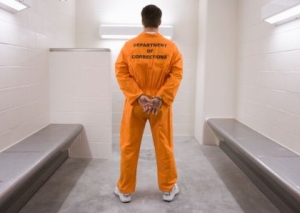
Is China Going To Execute Lead-Toy Vendors?
Chinese officials have announced that they will “severely” punish the vendors responsible for the recent lead-tainted toy snafu. That leads us to ask, what do they consider severe punishment? Remember what they did to the director of the food and drug agency for accepting poisoned toothpaste bribes? And the new state-sponsored video game “Incorruptible Fighter”, where players get to execute corrupt officials with magic or weapons, is so popular that it’s been downloaded over 100,000 times.
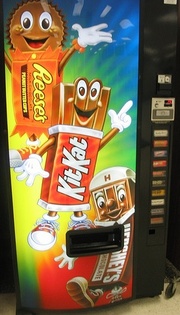
Candy From Denmark Not As Filthy As Previously Reported
Remember when we said exports from countries not named China were also tainted and filthy? It turns out the exports aren’t as tainted and filthy as the New York Times originally reported. The Times explains that a “methodology problem was discovered” after the Danish Embassy complained that their candy was refused by FDA inspectors only 82 times, not 520, as the Times claimed. From the Gray Lady:
When the data was re-analyzed, it showed that the number of candy shipments rejected from Denmark had not been higher than the number of seafood shipments rejected from China, as the article stated. The number of shipments rejected from China was also misstated; it was 331, not 391.
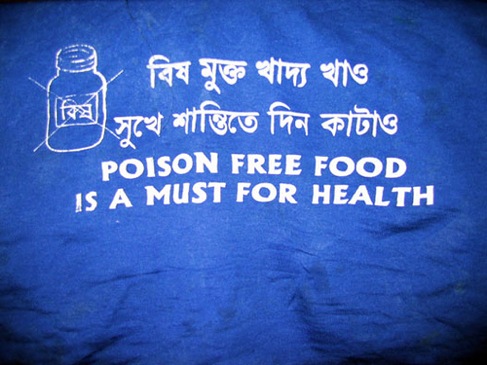
Tainted Exports Also Come From Countries Not Named China
Remember the Washington Post’s analysis of FDA Refusal Reports? The New York Times double-checked the Post’s work and found that China isn’t the only country exporting filthy salmonella-infested goods. Exports from India, Mexico, and the Dominican Republic have all been stopped at the U.S. border for failing to meet basic sanitary requirements.
Salmonella was the top reason that food was rejected from India, and it was found in products like black pepper, coriander powder and shrimp. “Filthy” was the primary reason food was stopped from Mexico, and the rejections included lollipops, crabmeat and dried chili.

Europe On Track to Pay Too Much for American Imperialist Pap (Still)
Poor Europe. Our friends in the Old Countries are constantly being squeezed by American technology companies, with prices for items like electronics and software at a huge premium to their American equivalents.


